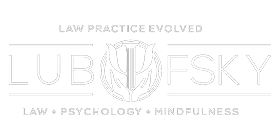In California, state laws provide robust protection against employment discrimination based on mental health conditions. These protections are primarily enshrined in the California Fair Employment and Housing Act (FEHA), which strictly prohibits such discrimination. This webpage will outline the core legal principles that safeguard Californians against mental health-based discrimination in the workplace and highlight some key case laws in this area.
1. The California Fair Employment and Housing Act
The FEHA is the primary legal protection against employment discrimination based on mental health conditions in California. Under this law, it is illegal for employers with five or more employees to discriminate against job applicants and employees due to a mental or physical disability, or perceived disability. It also requires employers to provide reasonable accommodations to employees with disabilities and to engage in a timely, good faith interactive process with employees in need of accommodations.
Mental health conditions covered under FEHA include, but are not limited to, bipolar disorder, major depressive disorder, anxiety disorders, and schizophrenia. It’s important to note that the law also covers perceived mental health conditions – i.e., if an employer believes an individual has a mental health condition, and discriminates against them based on this belief, they could be in violation of the FEHA, whether or not the individual actually has the condition.
2. Important Case Law in Mental Health Discrimination
1. Prilliman v. United Air Lines, Inc. (1997)
This case reinforced that an employer has a duty to reasonably accommodate employees’ mental health conditions. The court found that the employer could not dismiss an employee with a mental health condition without first considering possible reasonable accommodations.
2. Hanson v. Lucky Stores, Inc. (1999)
This case established that an employer has a duty to engage in a timely, good faith interactive process with employees to determine effective reasonable accommodations. The court concluded that the employer was liable for damages after failing to engage in such a process with an employee suffering from bipolar disorder.
3. Nadaf-Rahrov v. Neiman Marcus Group, Inc. (2008)
This case confirmed that the employer has the burden of proving that a proposed accommodation would impose an undue hardship. The court also held that an employer cannot escape liability for failing to accommodate by arguing that the employee failed to “cooperate” in the interactive process.
In California, employees and job applicants are entitled to strong legal protections against employment discrimination based on mental health conditions. It’s crucial to understand these rights, including the right to reasonable accommodation and the right to be free from discrimination.
If you believe you’ve been discriminated against due to a mental health condition, reach out to us for a free, confidential initial consultation.
